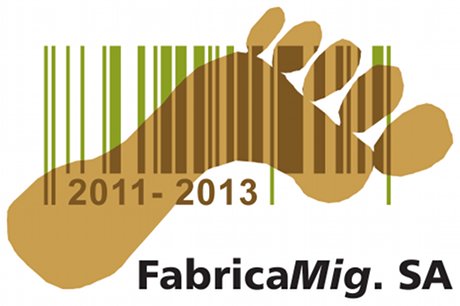La fabrique des Migrations et des savoirs associés (2011-2013)
(ANR-10-SUDS-0013)
Le projet de recherche pluridisciplinaire en sciences sociales « La Fabrique des Savoirs Migratoires » (sociologie, géographie, démographie, psychologie-sociale et anthropologie) porte sur l'étude des mécanismes de production des savoirs migratoires, tels qu’ils s’élaborent dans les mobilités et les activités des populations transmigrantes et transfrontalières dans deux régions du monde (Amérique du Nord et Centrale, Maghreb-Machrek) L'objectif du projet est d'étudier le phénomène des migrations internationales dans ses dynamiques sociales, selon des vecteurs spatiaux, économiques et temporels, interrogeant par la même les présupposés d’une société de la connaissance qui s’impose dans le discours des organismes internationaux.
Si l’on reconnaît assez aisément le phénomène migratoire aux deux premiers vecteurs, notamment du fait de la transnationalisation des espaces et des échanges économiques, la dimension temporelle du phénomène apparaît moins évidente. Après plusieurs décennies de circulations migratoires réitérées dans ces deux zones du monde, on ne peut manquer d’apercevoir les premiers éléments qui donnent à ce fait social une épaisseur temporelle conséquente, d’un bout à l’autre de la chaîne des générations migrantes.
La recherche n’a donc plus à établir un fait social, mais doit bien plutôt s’interroger sur le type de socialité qui se produit dans les sociétés observées. Les migrations internationales participent-elles d’un ordre social liquide (Bauman), sans supports pour l’individu (Castells), désinstitutionnalisé (Dubet), ou bien désignent-elles un autre type de sociabilité, ni liquide ni solide, qui resterait à définir mais qui n’en serait pas moins, en première hypothèse, le produit d’un art, d’une technique sociale du bricolage, plus spécifiquement propres aux aires géographiques choisies ?
Le projet se donne des jalons pratiques et une épistème comme fil conducteur. Sur ce dernier point, on pourrait situer schématiquement les postures sociologiques en deux pôles. D'un côté du spectre, ceux qui soulignent le caractère situé et local de l'action, la capacité des acteurs ainsi que la reconfiguration incessante du lien social. Les relations sociales y apparaissent comme toujours dépendantes d'arrangements ou de rapports de force locaux, elles semblent contingentes et historiquement variables. À l'opposé sont des approches qui s'attachent à la question de la permanence et de la reproduction de structures sociales dont il apparaît qu'elles exercent des contraintes fortes sur les possibles. Cette tension entre des épistémès (mais aussi les politiques qui les sous-tendent) traverse l'ensemble des sciences sociales établissant parfois des barrières infranchissables entre des mondes théoriques qui se vivent comme hautement incompatibles. Les études sur les migrations sont indiscutablement concernées de façon cruciale par cette tension. Notre proposition serait ici de tenter d'établir un chemin entre ces deux mondes, celui de Latour et celui de Bourdieu, par exemple, pour le bénéfice de la question migratoire. Il serait alors question de tenter de cerner le degré de malléabilité des mondes sociaux migratoires, par l’observation des savoirs qui se configurent dans les trois axes thématiques sélectionnés (les vecteurs ou les jalons pratiques), l’espace, l’économique et le temps.
Nous avons donc choisi d'articuler trois démarches analytiques de la migration : la première, porte sur les dynamiques spatiales liées à la mobilité internationale des populations (qu'elles soient transfrontalières ou transnationales); la seconde, à partir des espaces et/ou des sites du travail, consiste à analyser les stratégies de la mobilité et de la migration qui structurent les marchés du travail enfin; la troisième s'attache à lire la migration dans ses temporalités familiales et sociales.
Cette étude sera menée sur deux aires géographiques : d'une part l'Amérique du Nord et Centrale et, d'autre part, l'aire Maghreb-Machrek.
**************************************************************************************************************************************************************
Renseignements et contacts :
- Annabelle Sulmont (CEMCA) : mirage.anrsud@gmail.com
- Anne Bonneville (LEST) : anne.bonneville@univ-amu.fr



